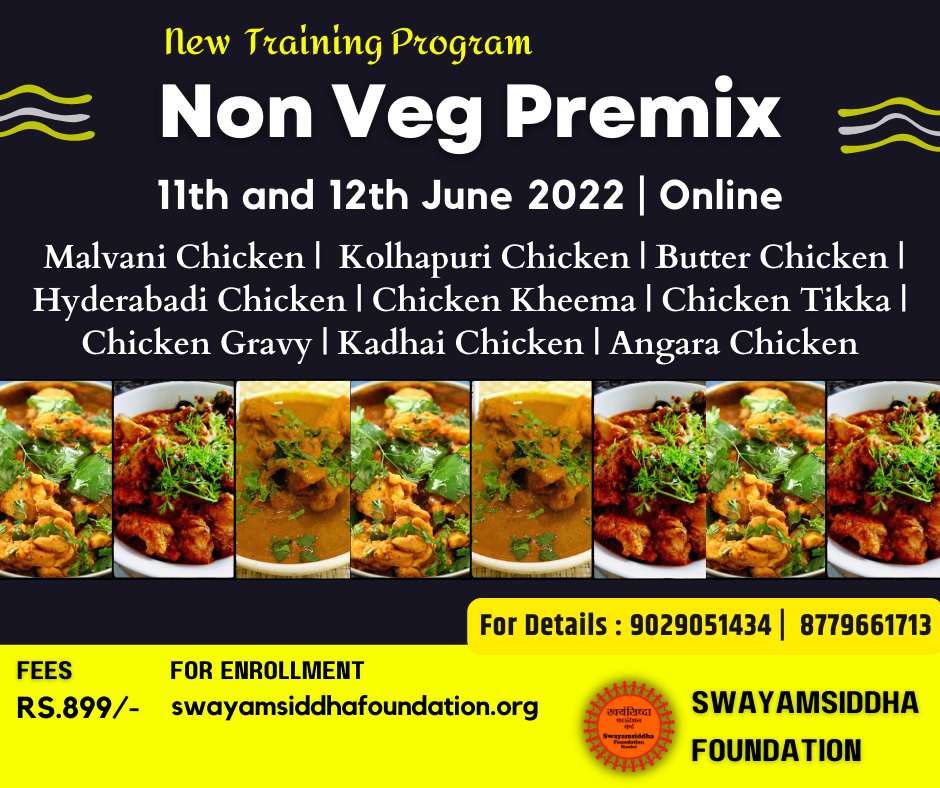
Non Veg Premix Course

Website Visitor Poll
Please do spare few seconds to participate in our Visitor Profile Poll.
[forminator_poll id=”2962″]

Anita Nirmale
Anita Nirmale

GeM Awareness Workshop
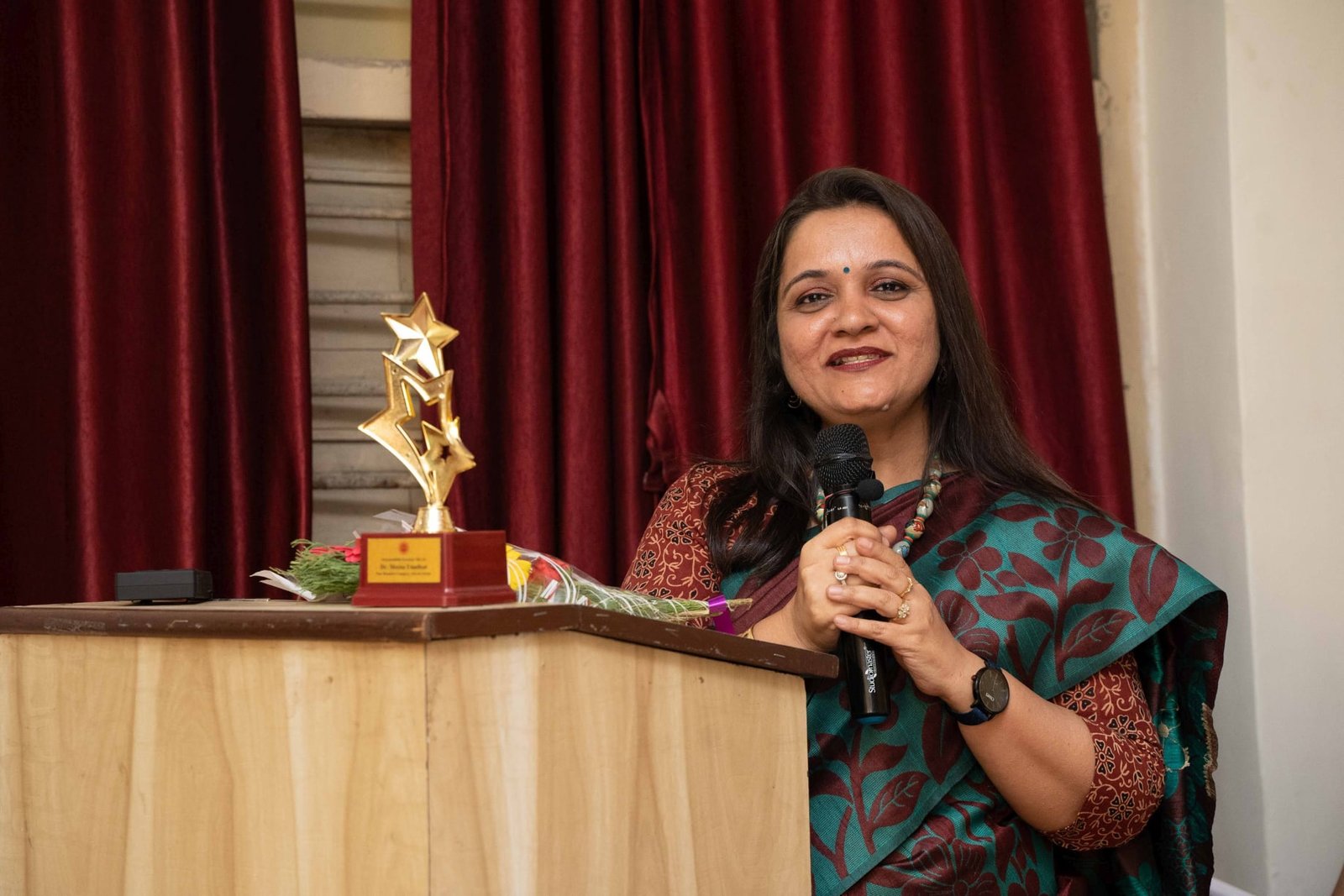
Winners Talk
Winners Talk
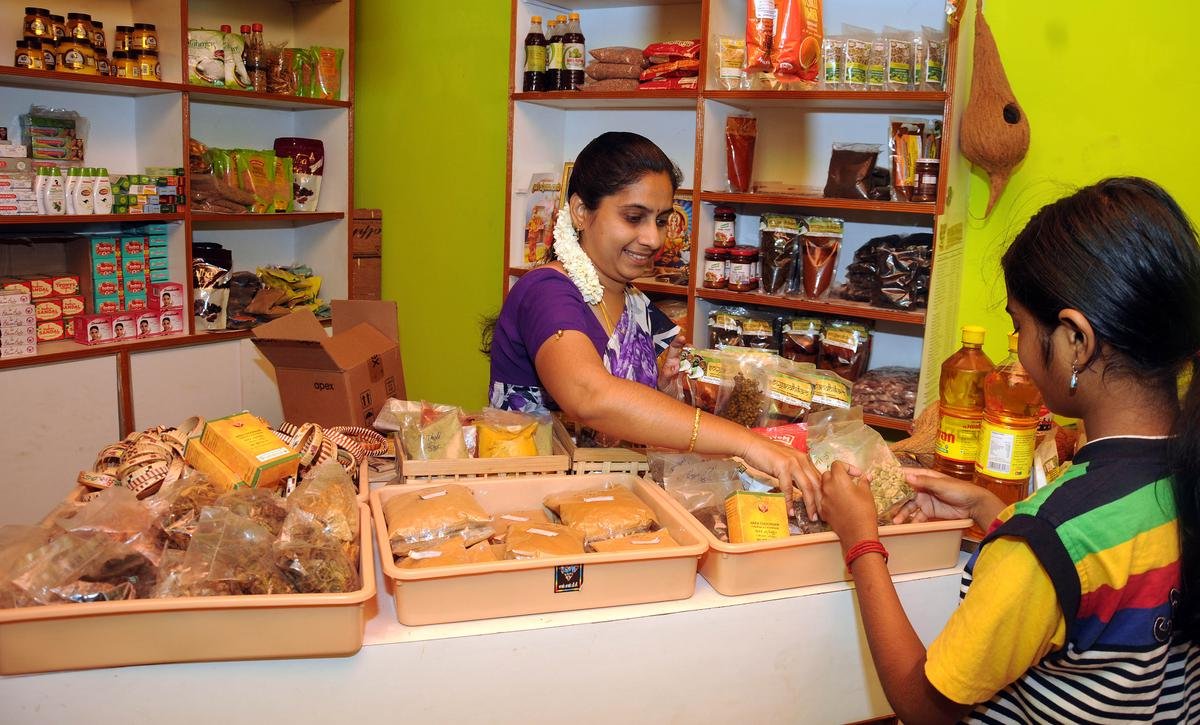
Women entrepreneurs scripting a silent transformation
A conducive social atmosphere enables them to thrive in Tamil Nadu
The 2021 edition of Women & Men in India, published last week by the National Statistical Office (NSO) of the Union Ministry of Statistics and Programme Implementation, has an element of pleasant surprise for Tamil Nadu.
With about 10.87 lakh units, Tamil Nadu accounts for the highest number of women entrepreneur-owned establishments, which cover not only micro, small and medium enterprises (MSMEs) but also nano units, promoted through platforms such as the self-help groups (SHGs). The State’s share is around 13.5 % of 80.5 lakh such establishments in the country. “No other State is even close to ours,” observes an official in the State government, dealing with development issues. Kerala comes next with around 9.14 lakh establishments having the share of 11.35%. Andhra Pradesh is placed third with around 8.5 lakh units (10.6%), followed by West Bengal with about 8.3 lakh units (10.3%). States known to be highly industrialised, Maharashtra and Gujarat, have 6,64,300 and 5,28,623 such establishments respectively with their shares being 8.25% and 6.57%.
Of these units in Tamil Nadu, 94% has been classified as “perennial” against the all-India figure of 89%. Even though the number of hired workers is about 2.93 lakhs, its proportion (27%) is higher than the national average of 17%. Again in terms of employment, the State finishes on top with 13.8% of about 1.34 crore persons employed in the country. Tamil Nadu’s figure is about 18.6 lakh persons.
The NSO document, in turn, quotes the findings of the Sixth Economic Census carried out during 2013-14. “Even though the data may appear to be outdated, this holds good even today in the absence of any other data,” the official points out. This explains why the Central agency too has to cite the 2013-14 census findings.
The official also explains that though certain events, including the introduction of the Goods and Services Tax (GST), demonetisation and the COVID-19 pandemic may have caused some impact, there is every likelihood of the overall situation remaining the same. (The data concerning Andhra Pradesh pertain to the present territorial limits of that State with Telengana having been dealt with separately, though the census was carried out much before the creation of the latter in 2014).
Another official specialising in the area of MSMEs and nano units says the “social climate” prevalent in the State is mainly responsible for the development. K.S. Bhagyalakshmi, vice-president of the Tamil Nadu chapter of the Dalit Indian Chamber of Commerce & Industry (DICCI), lauds the roles being played by the State Industries and MSME Departments, in addition to the Entrepreneurship Development and Innovation Institute-Tamil Nadu (EDII-TN) in making possible the accomplishment.
Pointing out that the policy framework has been conducive to greater direct participation of women in economy, the official says empowering women through education and better livelihood opportunities is one of the focus areas of the present government. Apart from what the Central government provides, the State has been implementing measures such as an additional capital subsidy of 5% and a target of 50% assigned to women under the New Entrepreneur-cum-Enterprise Development Scheme (NEEDS), with priority being given to destitute women.
The draft policy document, unveiled by the State government in December, also seeks to enlarge the government’s intervention. The interest subvention has been proposed in such a way that women-owned units or any enterprise having 50% of women employed vertically in all positions would have zero interest on successful repayment of the money lent through any formal financial institution. The provision of hand-holding and mentoring by industry experts to all the targeted 1 lakh women entrepreneurs, a financial support of up to ₹1 lakh to women graduating from livelihood as micro entrepreneurs for participation in seminars, workshops, symposiums or short training courses, the creation of women-specific district-wise help center/portal, preferably with an accountable call center, and the launch of additional awards for women entrepreneurs or women-led startups have all figured in the draft document.
Several experts drive home the point that the authorities should pay greater attention to providing greater financial support and market linkages to women entrepreneurs. Ms. Bhagyalakshmi suggests that the government reorient its measures in such a manner that women are given more focus when it comes to land allotment or any subsidy or support scheme.
With the overall environment being supportive of women entrepreneurs, some more steps in favour of women will definitely help the State achieve early its goal of becoming a $1 trillion economy. That is the hope of the experts and entrepreneurs such as Ms. Bhagyalakshmi.
Source

Webinars during Lockdown
Swayamsiddha Foundation organized various engaging webinars under Umang Manch during the lockdown period. These webinars were coordinated by Aradhi Thakoor, Director. Some of the prominent webinars are displayed below.
and many more…

Download our App
We have launched our Android Mobile App on Google PlayStore. Please download the same and never miss an Update!!
Click here to download Swayamsiddha App
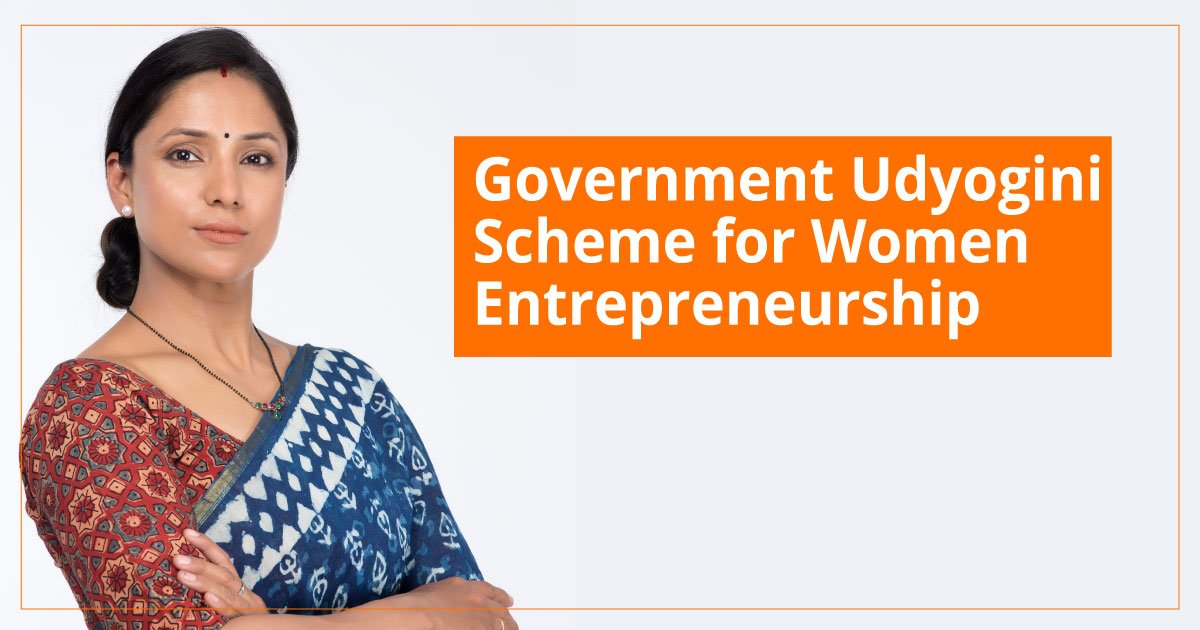
Udyogini Scheme
Udyogini means Women Entrepreneur and Government has initiated this scheme for the welfare and development of Indian Women Entrepreneurs. Udyogini Yojana has been implemented by Women Development Corporation under the Government of India.
This scheme promotes and motivates women’s entrepreneurship among the poor by providing financial support to women for doing business. Udyogini Scheme helps in the enhancement of income of an individual and families and contribute to the overall growth of the country.
| Udyogini Scheme Details – Feb 2022 | |
| Interest Rate | Competitive, subsidized or free for special cases |
| Loan Amount | Max. up to Rs. 3 lakh |
| Annual Family Income | Rs. 1.5 lakh or less |
| No income limit | For Widowed or disabled women |
| Collateral | Not required |
| Processing Fee | Nil |
Note: The mentioned interest rates are subject to change and depend on the sole discretion of the Government of India and respective banks or NBFCs.
Interest-free loans are offered to women of all sections of the society without any discrimination or preference. Udyogini Scheme is primarily offered by Karnataka State Women’s Development Corporation (KSWDC), Punjab and Sind bank, Saraswat Bank, as well as several other private and public sector banks and leading NBFCs. This scheme focuses on organizing and undertakes skill development training programs for women, besides offering financial assistance. Below mentioned are key details of this scheme:
Eligibility Criteria for Loans under Udyogini Scheme
- Business Loan available for only Women Entrepreneurs
- Should not have defaulted on any past loan with any financial institution
- Applicant with good credit score and repayment capability
Documents required
- Duly filled Application Form with passport-sized photographs
- Applicant’s Aadhaar Card, Birth Certificate
- Applicant’s Below Poverty Line (BPL) card & Ration Card
- Address and Income Proofs
- Caste Certificate, if applicable
- Copy of Bank passbook (account, bank and branch names, holder name, IFSC and MICR)
- Any other document required by the bank/NBFC
Who can Apply for a Loan under Udyogini Yojana Scheme?
Udyogini Yojana offered by several banks can be availed by aspiring women entrepreneurs across the nation. This scheme is exclusively initiated to promote women’s entrepreneurship and financial empowerment. Under this scheme, subsidized loans are offered for women entrepreneurs from rural areas.
How to Apply for a Business Loan under the Udyogini Scheme?
To apply for a business loan under this scheme or yojana, applicants can visit the nearest bank with all the required documents and fill an application form to proceed with bank formalities. Another option is that applicants can apply for loans online by visiting the official website of banks offering loans under the Udyogini scheme.
Below mentioned are the features and eligibility criteria for loans under this scheme from leading banks and NBFCs:
Udyogini Scheme from Bajaj Finserv
| Interest Rate | Interest-free loan to women from all sections of the society |
| Loan Amount | Max. up to Rs. 3 lakh |
| Loans available for | 88 SSIs – Small Scale Industries |
| Subsidy | Up to 30% |
| Family Income Criteria | Should be less than Rs. 1.5 lakh |
| Training for Skill Development | Available |
Udyogini Scheme from Saraswat Bank
| Micro Enterprises | Small Scale Enterprises | Medium Enterprises | |
| Interest Rate | 11.15% onwards | 11.15% onwards | 11.15% onwards |
| Loan Amount | Up to Rs. 2 lakh | From Rs. 2 lakh up to Rs. 50 lakh | From Rs. 50 lakh up to Rs. 100 lakh |
| Processing Fee | Rs. 5,000 | · Upto Rs. 10 lakh – Rs. 5000· Above Rs. 10 lakh and Upto Rs. 25 lakh – Rs. 7000· Above Rs. 25 lakh – Rs. 10000 | Rs. 10,000 |
| Repayment Tenure | 6 Years | 6 Years | 7 Years |
| Margin | Nil | 20%-25% lower than the Bank’s norm | 20%-25% lower than the Bank’s norm |
| Security | Hypothecation + Guarantee of Spouse or a Family member wherever required. | Hypothecation + 2 Guarantors + Collateral Security (25%) | Hypothecation + 2 Guarantors + Collateral Security (30%) |
Udyogini Scheme from Punjab & Sind Bank (PSB)
| Interest Rate – Vyapar Loan | 9.65% onwards (Working Capital Loan) |
| Loan Amount | Depends on business requirements |
| Processing Fee | Nil |
| Margin | Nil up to Rs. 25,000 |
| Security/Collateral | Nil, up to Rs. 25,000 |
| Loan Type | Term Loans and Working Capital Loans |
Udyogini Scheme from Karnataka State Women’s Development Corporation (KSWDC)
| Interest Rate | As per business requirements |
| Age Criteria | Min. 18 years and Max. 45 years |
| Loan Amount | Up to Rs. 3 lakh |
| Subsidy | Up to 50%, family income limit to be less than Rs. 2 lakh for SC/ST category |
| Family Income Criteria | No limit for women under special category and for general category – Family income should be less than Rs. 40,000 |
| EDP Training provided | For 3 days, before loan disbursal |
Note: All the above-mentioned interest rates, fees and charges are subject to change and depend on the sole discretion of the banks, NBFCs and RBI. GST and service tax shall be levied extra on the mentioned charges. Interest rates are updated as on Feb 2022.
Funding support can be availed by businesses engaged in the SSI sector, retailers, manufacturers, self-employed professionals, traders, etc. Some of the leading banks offer interest-free loans to 88 categories of SSI. Below mentioned is an exhaustive list of 88 categories that fall under SSI sector that are supported under the Udyogini Scheme:
List of 88 Business Categories supported under the Udyogini Scheme
- Agarbatti Manufacturing
- Audio & Video Cassette Parlour
- Bakeries
- Banana Tender Leaf
- Bangles
- Beauty Parlour
- Bedsheet & Towel Manufacturing
- Book Binding And Note Books Manufacturing
- Bottle Cap Manufacturing
- Cane & Bamboo Articles Manufacturing
- Canteen & Catering
- Chalk Crayon Manufacturing
- Chappal Manufacturing
- Cleaning Powder
- Clinic
- Coffee & Tea Powder
- Condiments
- Corrugated Box Manufacturing
- Cotton Thread Manufacturing
- Crèche
- Cut Piece Cloth Trade
- Dairy & Poultry Related Trade
- Diagnostic Lab
- Dry Cleaning
- Dry Fish Trade
- Eat-Outs
- Edible Oil Shop
- Energy Food
- Fair-Price Shop
- Fax Paper Manufacturing
- Fish Stalls
- Flour Mills
- Flower Shops
- Footwear Manufacturing
- Fuel Wood
- Gift Articles
- Gym Centre
- Handicrafts Manufacturing
- Household Articles Retail
- Ice Cream Parlour
- Ink Manufacture
- Jam, Jelly & Pickles Manufacturing
- Job Typing & Photocopying Service
- Jute Carpet Manufacturing
- Leaf Cups Manufacturing
- Library
- Mat Weaving
- Match Box Manufacturing
- Milk Booth
- Mutton Stalls
- Newspaper, Weekly & Monthly Magazine Vending
- Nylon Button Manufacturing
- Old Paper Marts
- Pan & Cigarette Shop
- Pan Leaf or Chewing Leaf Shop
- Papad Making
- Phenyl & Naphthalene Ball Manufacturing
- Photo Studio
- Plastic Articles Trade
- Pottery
- Printing & Dyeing of Clothes
- Quilt & Bed Manufacturing
- Radio & TV Servicing Stations
- Ragi Powder Shop
- Readymade Garments Trade
- Real Estate Agency
- Ribbon Making
- Sari & Embroidery Works
- Security Service
- Shikakai Powder Manufacturing
- Shops & Establishments
- Silk Thread Manufacturing
- Silk Weaving
- Silk Worm Rearing
- Soap Oil, Soap Powder & Detergent Cake Manufacturing
- Stationery Shop
- STD Booths
- Sweets Shop
- Tailoring
- Tea Stall
- Tender Coconut
- Travel Agency
- Tutorials
- Typing Institute
- Vegetable & Fruit Vending
- Vermicelli Manufacturing
- Wet Grinding
- Woollen Garments Manufacturing
Loans under Udyogini Scheme are offered by various financial institutions like co-operative banks, Regional Rural Banks (RRBs), and commercial banks at competitive interest rates. The scheme provides subsidies from the corporation for running business activities to only women entrepreneurs. Udyogini Scheme application form is available at the bank’s official websites.
FAQs on Udyogini Scheme
Q. What is the purpose of the Udyogini Scheme?
Ans. To promote women’s entrepreneurship and encourage the Small Scale Industry (SSI) sector by creating more employment opportunities and growth.
Q. How much loan I can get under the Udyogini scheme?
Ans. The maximum loan amount offered to a women entrepreneur under the Udyogini scheme is up to Rs. 3 lakh.
Q. Where Can I get a loan under this scheme?
Ans. Business loans offered under Udyogini schemes are offered by leading financial institutions. Some of the banks and NBFCs offering business loans under this scheme include Bajaj Finserv, Saraswat bank, Punjab and Sind Bank, Karnataka State Women’s Development Corporation (KSWDC), and many more.
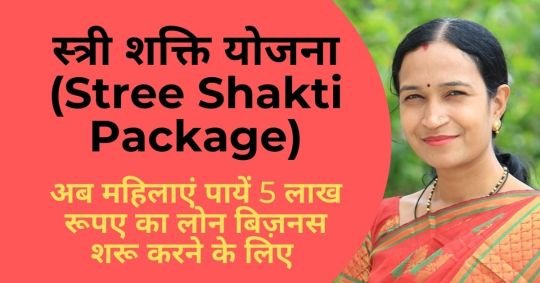
Stree Shakti Package
There is a lot of focus on promoting women entrepreneurship in India with the government and financial institutions having various schemes. One such scheme promoted by the State Bank of India (SBI) is Stree Shakti Package for Women Entrepreneurs. In this article, we look at the SBI Stree Sakthi Package for women Entrepreneurs in detail.
Stree Shakti Package Eligibility
Businesses operated by women entrepreneurs are eligible to receive a loan under Stree Shakti Package. For the purpose of identifying “Women Entrepreneurs” businesses, the definition recommended by the MSME Department of India will be applicable. As per definition, a Women Entrepreneur business is “A small scale industrial unit/industry related service or business enterprise managed by one or more women entrepreneurs in proprietary concerns or in which she/they individually or jointly have a share capital of not less than 51% as partners /shareholders/Directors of Private Limited Company/Members of Co-operative Society.
Thus, women entrepreneurs or women entrepreneur business in retail trade, manufacturing or services are eligible for the scheme. Also, Women professionals like Doctors, Beauticians, Architects and Chartered Accountants can avail loan under the Stree Shakti package.
Amount of Loan
Loan in the form of term loan or working capital can be provided under the Stree Shakti package. The quantum of loan provided would be based on the borrower profile and the following guidelines:
• Retail traders: Rs. 50000 to Rs.2 Lakhs
• Business enterprises: Rs. 50000 to Rs.2 Lakhs
• Professionals: Rs. 50000 to Rs.25 Lakhs
• SSI: Rs. 50000 to Rs.25 Lakhs
As the package is aimed at Women Entrepreneurs, concessions or relaxations in the margin is in-built into the scheme along with the low floating rate of interest, linked to the base rate of the bank.
Collateral Requirement
It does not require any collateral for a loan of upto Rs.10 lakhs, extended to MSME enterprises owned by Women Entrepreneurs. Further, loans to women entrepreneurs of upto Rs.100 lakhs that can be covered under the CGTMSE scheme also requires no collateral. However, collateral is a must for any loan above Rs.1 crore or based on the borrower profile.
Documents Required
- Proof of identity: Voter’s ID Card/ Passport/ Driving License/ PAN Card/ signature identification from present bankers of the proprietor, partner or Director (if a company).
- Proof of residence: Recent telephone bill, electricity bill, property tax receipt/ Passport/ Voter’s ID Card of the proprietor, partner or Director (if a company).
- Proof of business address
- Proof of Minority
- Last three years balance sheets of the units along with income/sales tax returns etc.
- Memorandum and articles of association of the Company/ Partnership Deed of partners etc.
- Assets and liabilities statement of promoters and guarantors along with latest income tax returns.
- Rent Agreement (if business premises on rent) and clearance from pollution control board if applicable.
- SSI registration if applicable.
- Projected balance sheets for the next two years in case of working capital limits and for the period of the loan in case of term loan.
- In case of takeover of advances, sanction letters of facilities being availed from existing bankers/ Financial Institutions along with detailed terms and conditions.
- Profile of the unit (includes names of promoters, other directors in the company, the activity being undertaken, addresses of all offices and plants, shareholding pattern etc.
- Last three years balance sheets of the Associate/Group Companies (If any).
- Project report (for the proposed project if term funding is required) containing details of the machinery to be acquired, from whom to be acquired, price, names of suppliers, financial details like capacity of machines, capacity utilization assumed, production, sales, projected profit and loss and balance sheets for the next 7to 8 years till the proposed loan is to be paid, the details of labour, staff to be hired, basis of assumption of such financial details etc.
- Review of account containing month wise sales (quantity and value both), production (quantity and value), imported raw material (quantity and value), indigenous raw material (quantity and value), value of stocks in process, finished goods (quantity and value), debtors, creditors, bank’s outstandings for working capital limits, term loan limits, bills discounted.
- Photocopies of lease deeds/title deeds of all the properties being offered as primary and collateral securities.
- Position of accounts from the existing bankers and confirmation about the asset being Standard with them (In case of takeover).
- Manufacturing process if applicable, the major profile of executives in the company, any tie-ups, details about raw material used and their suppliers, details about the buyers, details about major competitors and the company’s strength and weaknesses as compared to their competitors etc.

